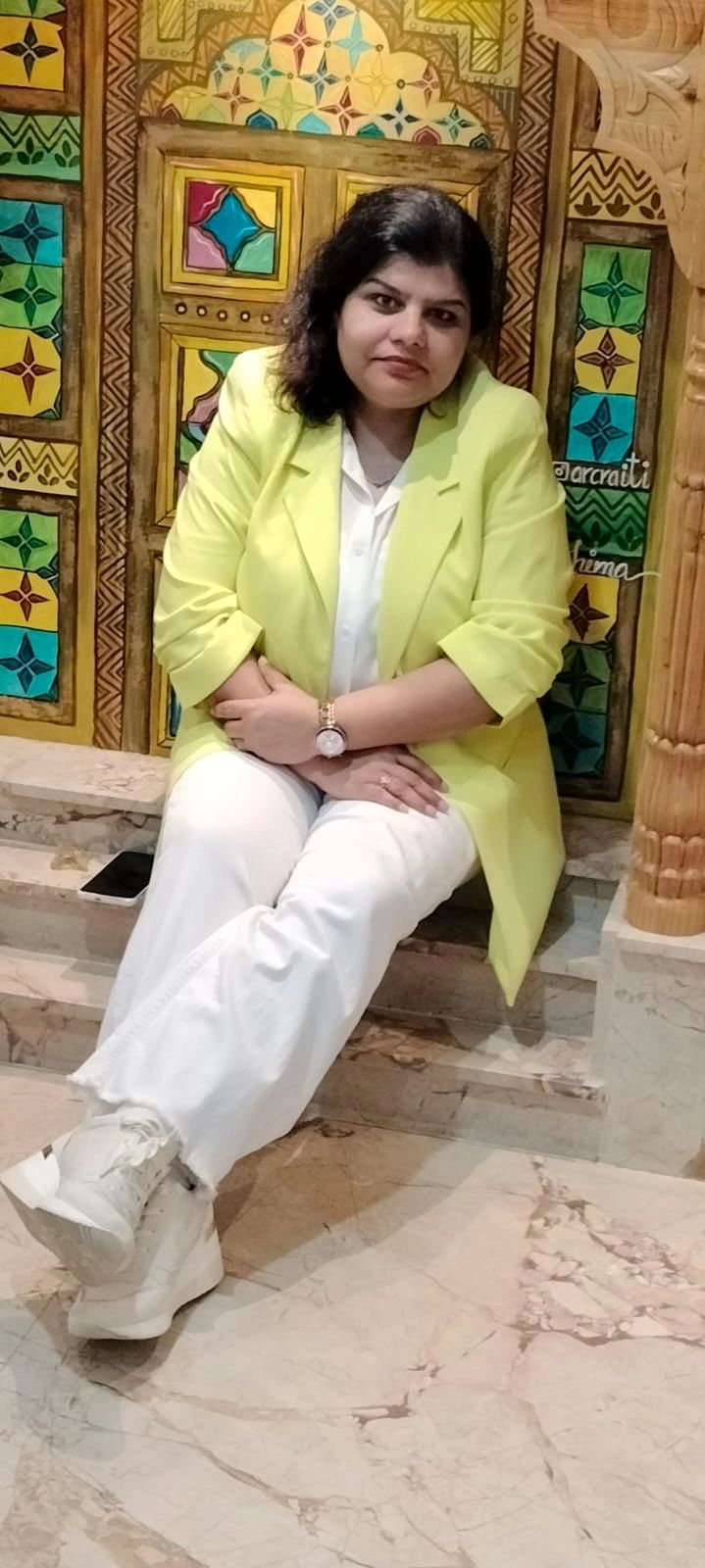Mental Health Awareness: A Conversation With Dr. Shradha Malik

Table of Contents
Understanding the Current State of Mental Health
Prevalence of Mental Health Issues
The statistics surrounding mental health are stark and concerning. Globally, we are seeing a significant rise in the prevalence of mental health issues. The World Health Organization (WHO) reports that depression is a leading cause of disability worldwide, affecting hundreds of millions. Similarly, anxiety disorders are increasingly common, impacting people of all ages and backgrounds.
- Anxiety Disorders: The prevalence of anxiety disorders is estimated to be around [Insert Statistic, cite source]. This includes generalized anxiety disorder, panic disorder, social anxiety disorder, and specific phobias.
- Depression Rates: Depression affects [Insert Statistic, cite source] of the global population. This number is likely an underestimation, given the stigma associated with seeking help for mental health conditions.
- Other Mental Health Concerns: Beyond anxiety and depression, other significant mental health concerns include post-traumatic stress disorder (PTSD), bipolar disorder, schizophrenia, and eating disorders. These conditions often require specialized treatment and ongoing support.
The impact of societal factors like social media pressure, economic instability, and political uncertainty significantly contributes to the rising rates of mental health issues. Furthermore, the pervasive stigma associated with mental illness prevents many individuals from seeking help, exacerbating the problem.
Recognizing the Signs and Symptoms
Recognizing the signs and symptoms of various mental health conditions is the first crucial step towards seeking help and recovery. It's essential to understand that mental health conditions manifest differently in each individual. However, some common signs and symptoms include:
- Anxiety: Excessive worry, restlessness, difficulty concentrating, irritability, muscle tension, sleep disturbances.
- Depression: Persistent sadness, loss of interest in activities, changes in appetite or sleep, fatigue, feelings of worthlessness or guilt, thoughts of self-harm or suicide.
- Stress: Irritability, difficulty sleeping, headaches, muscle tension, digestive problems, feeling overwhelmed.
It’s important to distinguish between normal stress and a diagnosable mental health condition. While everyone experiences stress, a mental health condition involves persistent and overwhelming symptoms that significantly impact daily life. If you are concerned about your mental well-being, seeking professional help is crucial.
Dr. Malik's Expertise and Approach to Mental Health Treatment
Dr. Malik's Background and Specialization
Dr. Shradha Malik is a highly respected [Dr. Malik's Specialization, e.g., psychiatrist, clinical psychologist] with [Number] years of experience in the field of mental health. She holds a [Degree] from [University] and has published extensively on topics related to [mention areas of expertise]. Dr. Malik is known for her compassionate and effective approach to patient care.
- Credentials: [List Dr. Malik’s credentials and certifications]
- Experience: [Highlight significant experience, e.g., work in specific settings, research projects]
- Publications/Achievements: [Mention notable publications or awards]
Treatment Modalities
Dr. Malik employs a range of evidence-based treatment modalities tailored to the individual needs of her patients. These may include:
- Cognitive Behavioral Therapy (CBT): This therapy helps individuals identify and change negative thought patterns and behaviors.
- Dialectical Behavior Therapy (DBT): DBT focuses on managing emotions, improving interpersonal relationships, and increasing distress tolerance.
- [Other therapies Dr. Malik uses]: [List other relevant therapies]
- Medication Management (if applicable): In some cases, medication may be a necessary component of a comprehensive treatment plan.
Importance of Holistic Care
Dr. Malik emphasizes the importance of a holistic approach to mental health treatment, recognizing that lifestyle factors significantly impact mental well-being. Her treatment plans often incorporate:
- Exercise: Regular physical activity can significantly reduce stress and improve mood.
- Nutrition: A balanced diet provides the body with the nutrients it needs to function optimally.
- Sleep: Adequate sleep is crucial for both physical and mental health.
- Mindfulness and Relaxation Techniques: Practices like meditation and yoga can help manage stress and improve emotional regulation.
Breaking the Stigma Surrounding Mental Health
The Impact of Stigma
The stigma surrounding mental health remains a significant barrier to seeking help. Many individuals are hesitant to disclose their struggles due to fear of judgment, discrimination, or social isolation.
- Consequences of Untreated Mental Health Issues: Untreated mental health issues can lead to severe consequences, including relationship problems, job loss, substance abuse, and even suicide.
- Negative Impact of Societal Attitudes: Negative societal attitudes and misconceptions about mental illness perpetuate the stigma and prevent individuals from seeking help.
Promoting Open Conversations
Open communication is essential to breaking the stigma surrounding mental health. We need to create a culture where talking about mental health is as commonplace as discussing physical health.
- Starting Conversations: Initiate conversations with friends, family, and colleagues about mental health. Listen without judgment and offer support.
- Educate Others: Share accurate information about mental health and debunk common misconceptions.
- Challenge Stigmatizing Language: Avoid using stigmatizing language and challenge others who do.
Resources and Support Systems
Numerous resources and support systems are available for individuals struggling with mental health. These include:
- Helplines: [List relevant helplines and their numbers]
- Online Resources: [List relevant websites and online resources]
- Mental Health Organizations: [List relevant mental health organizations and their websites]
Conclusion
Our conversation with Dr. Shradha Malik highlighted the urgent need for increased mental health awareness. The rising prevalence of mental health issues, coupled with the pervasive stigma, underscores the importance of early intervention and readily available support. Dr. Malik's emphasis on holistic care and evidence-based treatment modalities offers a beacon of hope for individuals struggling with their mental well-being. Remember, prioritizing your mental health is just as important as prioritizing your physical health.
Raise your voice for Mental Health Awareness! Seek professional help if you need it, and become an advocate for Mental Health Awareness within your community. Utilize the resources listed above to find support and learn more about maintaining optimal mental well-being. Let's work together to create a society where everyone feels comfortable seeking help and receiving the support they need.

Featured Posts
-
 Conclave Papal L Ombre De L Influence Politique De Macron
May 03, 2025
Conclave Papal L Ombre De L Influence Politique De Macron
May 03, 2025 -
 Sfynt Astwl Alhryt Wqaye Alhjwm Alisrayyly Wdhayah
May 03, 2025
Sfynt Astwl Alhryt Wqaye Alhjwm Alisrayyly Wdhayah
May 03, 2025 -
 Daily Lotto Results Friday 18th April 2025
May 03, 2025
Daily Lotto Results Friday 18th April 2025
May 03, 2025 -
 Glastonbury Festival 2025 Dont Miss Out Resale Tickets
May 03, 2025
Glastonbury Festival 2025 Dont Miss Out Resale Tickets
May 03, 2025 -
 Orta Afrika Cumhuriyeti Ile Bae Arasinda Tarihi Ticaret Anlasmasi Imzalandi
May 03, 2025
Orta Afrika Cumhuriyeti Ile Bae Arasinda Tarihi Ticaret Anlasmasi Imzalandi
May 03, 2025
